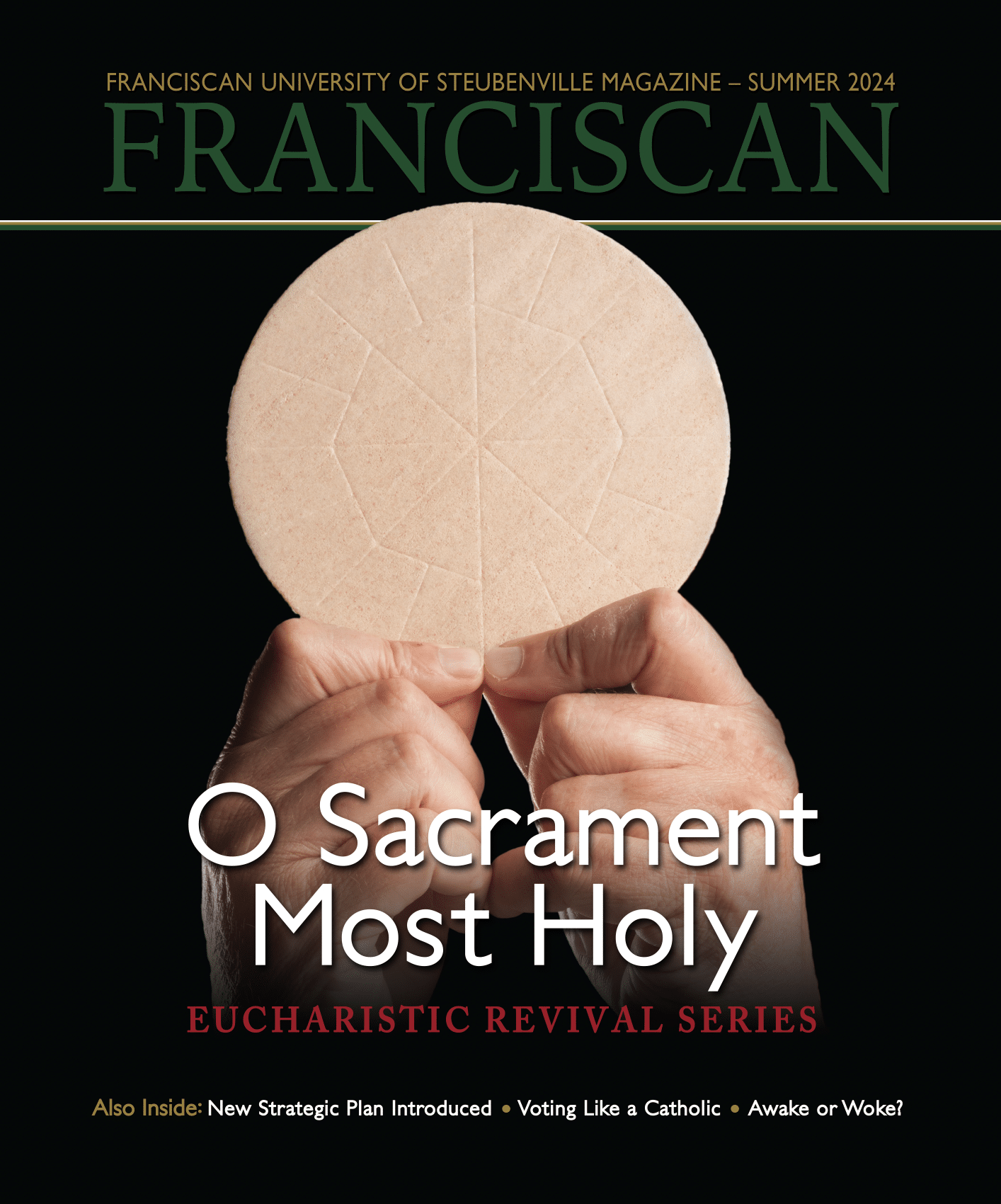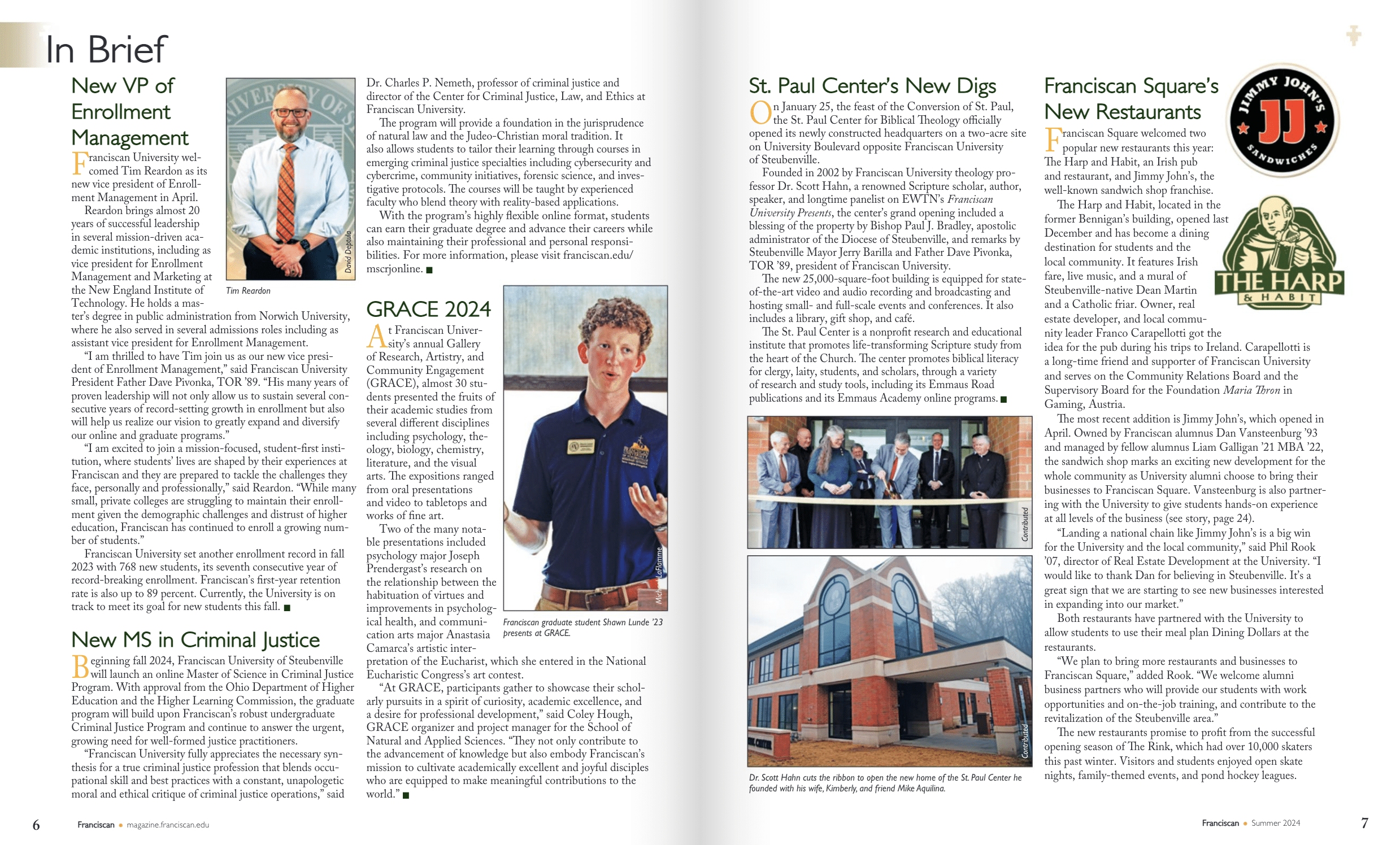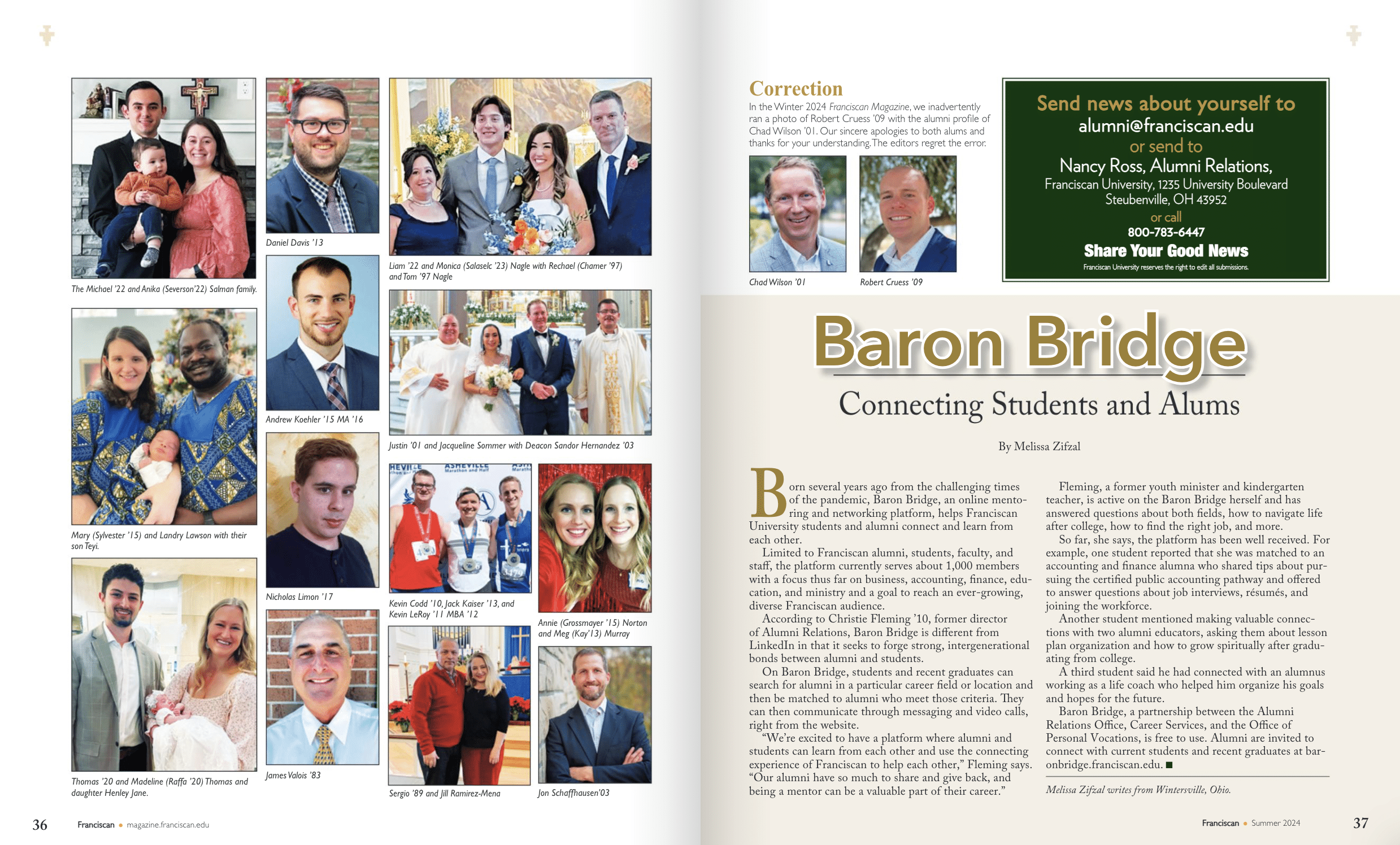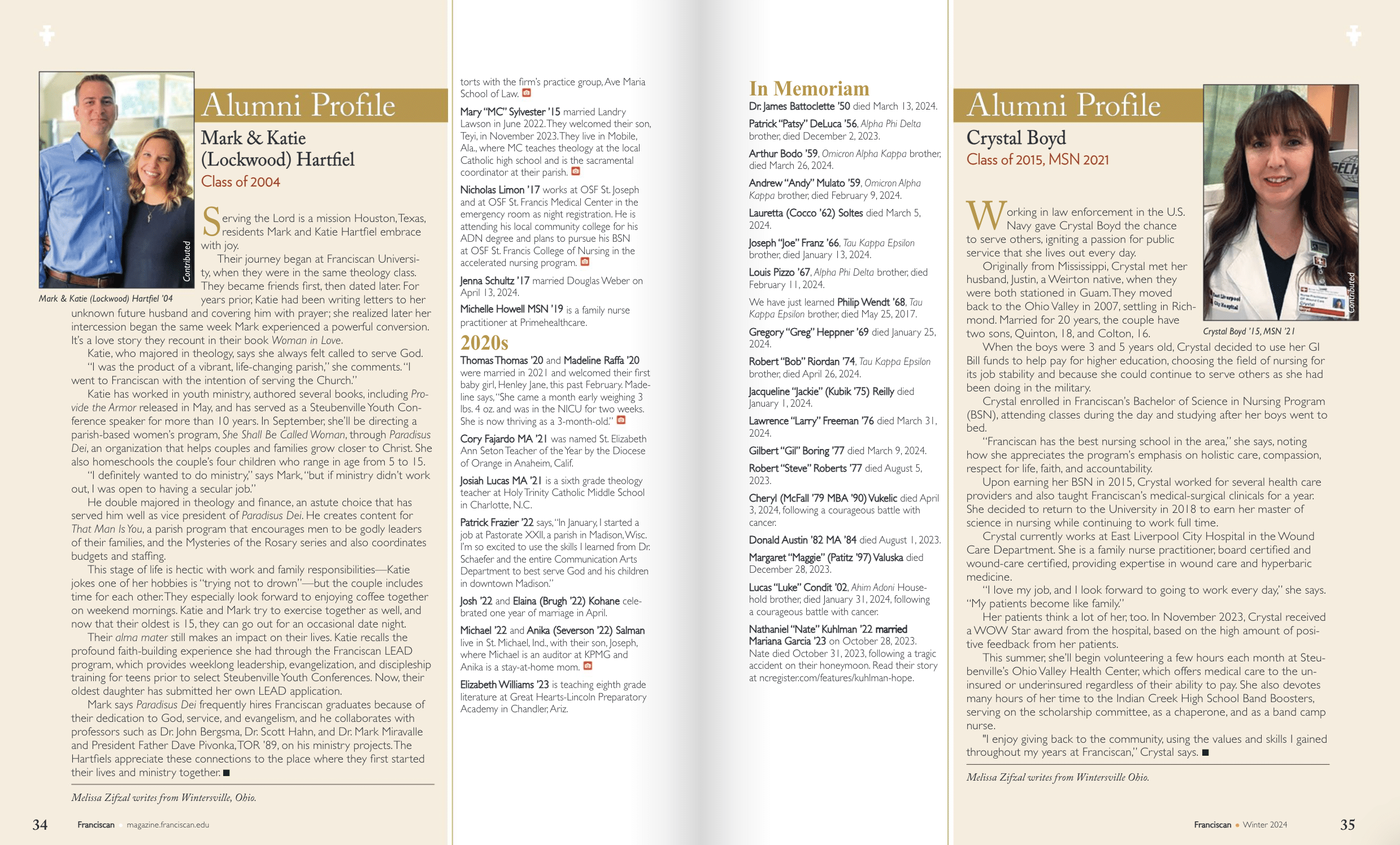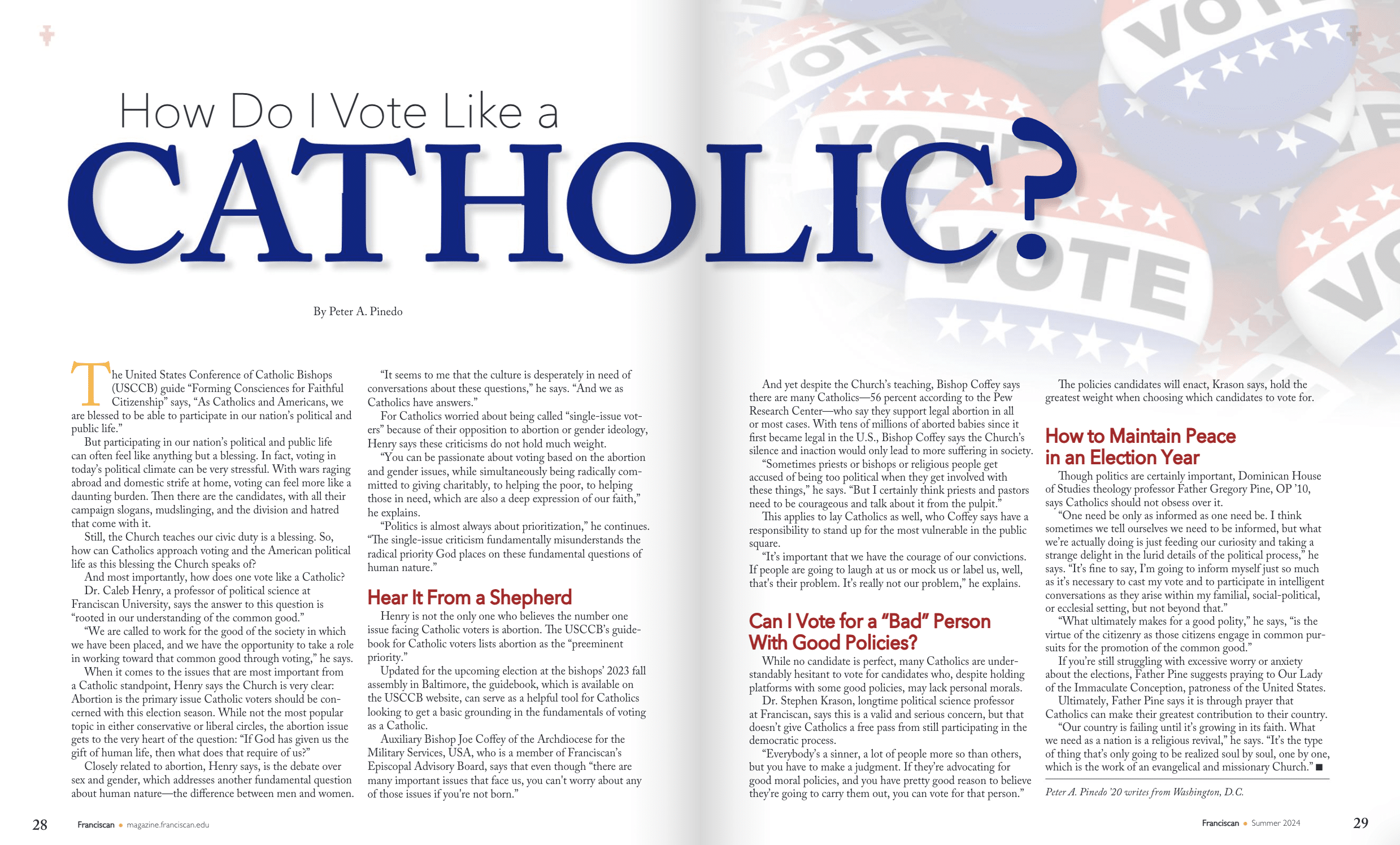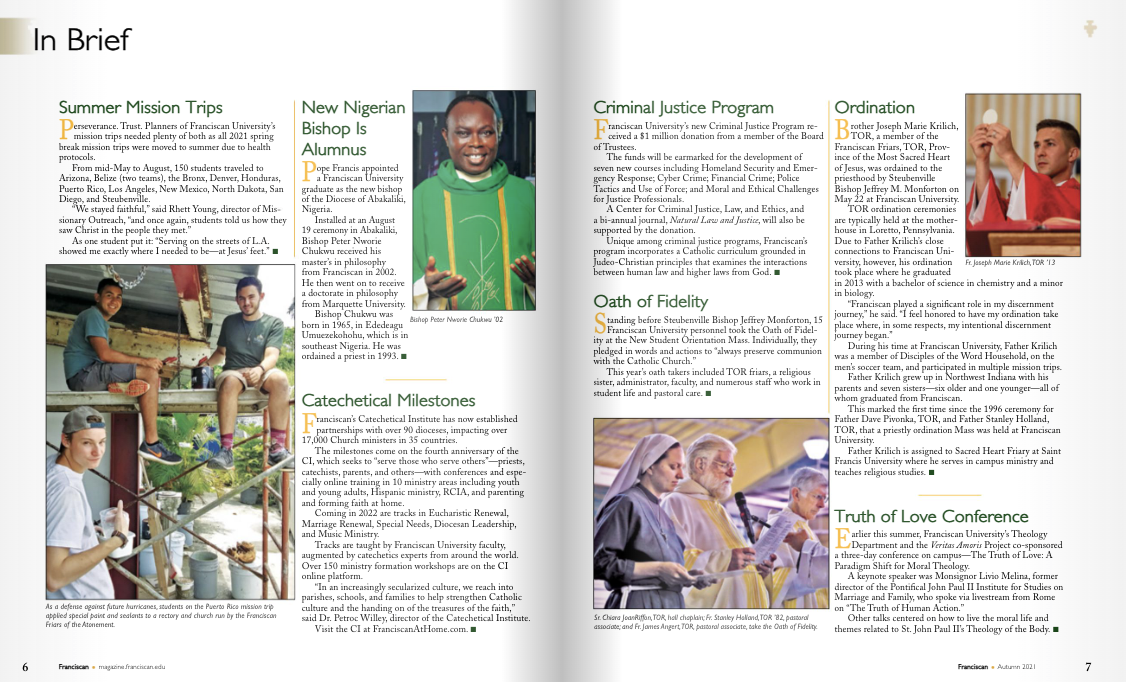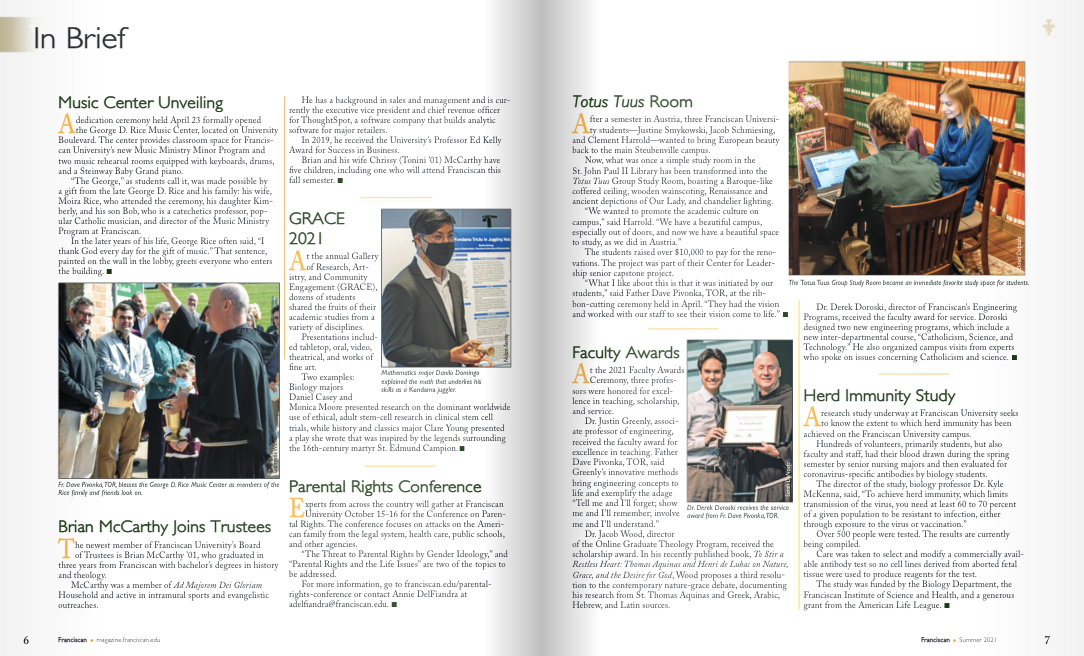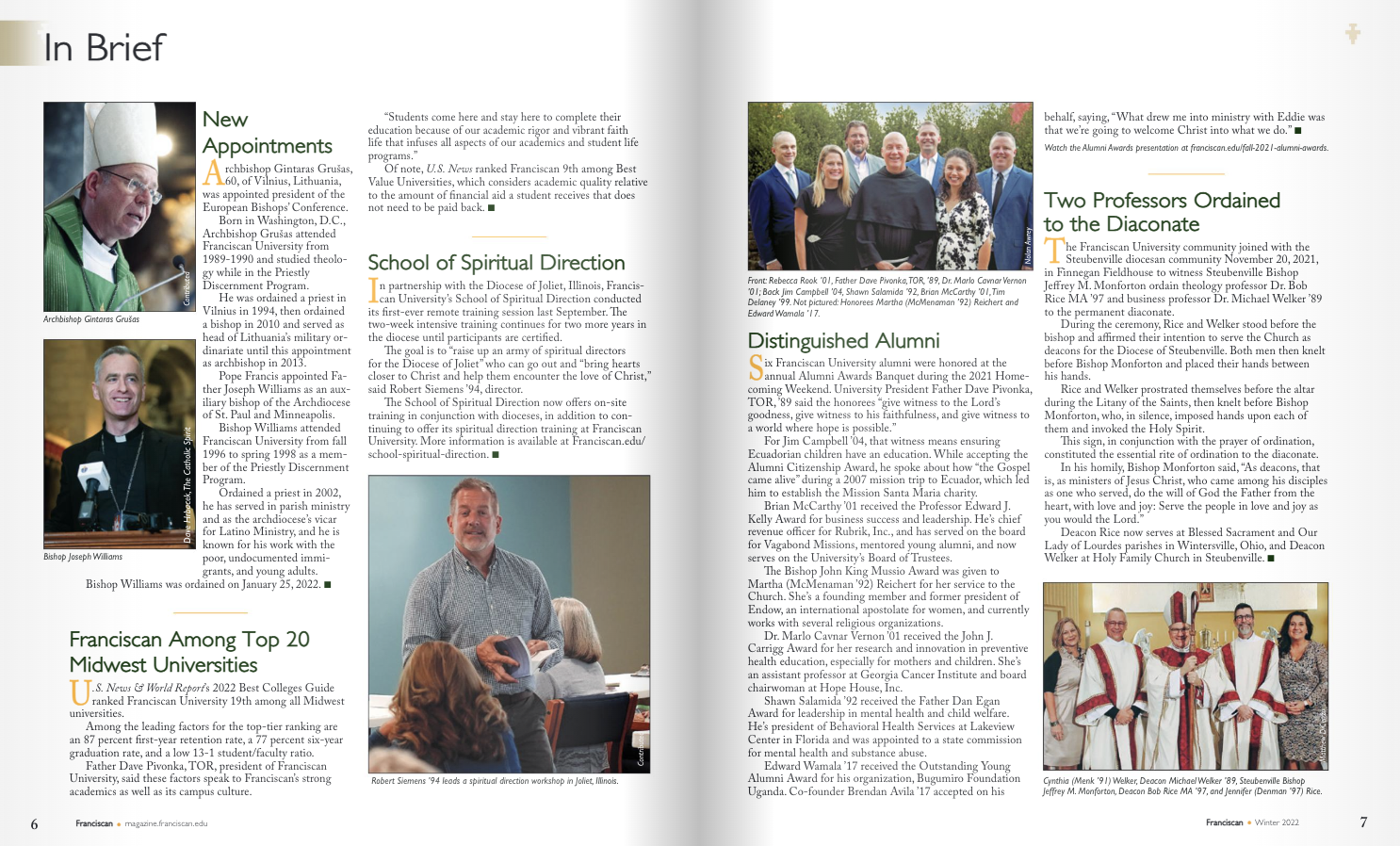New VP of Enrollment Management
Franciscan University welcomed Tim Reardon as its new vice president of Enrollment Management in April.
Reardon brings almost 20 years of successful leadership in several mission-driven academic institutions, including as vice president for Enrollment Management and Marketing at the New England Institute of Technology. He holds a master’s degree in public administration from Norwich University, where he also served in several admissions roles including as assistant vice president for Enrollment Management.
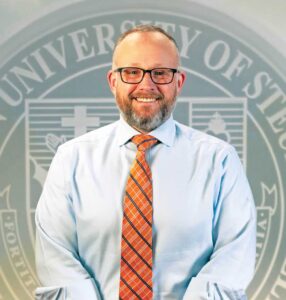
Tim Reardon
“I am thrilled to have Tim join us as our new vice president of Enrollment Management,” said Franciscan University President Father Dave Pivonka, TOR ’89. “His many years of proven leadership will not only allow us to sustain several consecutive years of record-setting growth in enrollment but also will help us realize our vision to greatly expand and diversify our online and graduate programs.”
“I am excited to join a mission-focused, student-first institution, where students’ lives are shaped by their experiences at Franciscan and they are prepared to tackle the challenges they face, personally and professionally,” said Reardon. “While many small, private colleges are struggling to maintain their enrollment given the demographic challenges and distrust of higher education, Franciscan has continued to enroll a growing number of students.”
Franciscan University set another enrollment record in fall 2023 with 768 new students, its seventh consecutive year of record-breaking enrollment. Franciscan’s first-year retention rate is also up to 89 percent. Currently, the University is on track to meet its goal for new students this fall.
New MS in Criminal Justice
Beginning fall 2024, Franciscan University of Steubenville will launch an online Master of Science in Criminal Justice Program. With approval from the Ohio Department of Higher Education and the Higher Learning Commission, the graduate program will build upon Franciscan’s robust undergraduate Criminal Justice Program and continue to answer the urgent, growing need for well-formed justice practitioners.
“Franciscan University fully appreciates the necessary synthesis for a true criminal justice profession that blends occupational skill and best practices with a constant, unapologetic moral and ethical critique of criminal justice operations,” said Dr. Charles P. Nemeth, professor of criminal justice and director of the Center for Criminal Justice, Law, and Ethics at Franciscan University.
The program will provide a foundation in the jurisprudence of natural law and the Judeo-Christian moral tradition. It also allows students to tailor their learning through courses in emerging criminal justice specialties including cybersecurity and cybercrime, community initiatives, forensic science, and investigative protocols. The courses will be taught by experienced faculty who blend theory with reality-based applications.
With the program’s highly flexible online format, students can earn their graduate degree and advance their careers while also maintaining their professional and personal responsibilities. For more information, please visit franciscan.edu/mscrjonline.
GRACE 2024
At Franciscan University’s annual Gallery of Research, Artistry, and Community Engagement (GRACE), almost 30 students presented the fruits of their academic studies from several different disciplines including psychology, theology, biology, chemistry, literature, and the visual arts. The expositions ranged from oral presentations and video to tabletops and works of fine art.
Two of the many notable presentations included psychology major Joseph Prendergast’s research on the relationship between the habituation of virtues and improvements in psychological health, and communication arts major Anastasia Camarca’s artistic interpretation of the Eucharist, which she entered in the National Eucharistic Congress’s art contest.



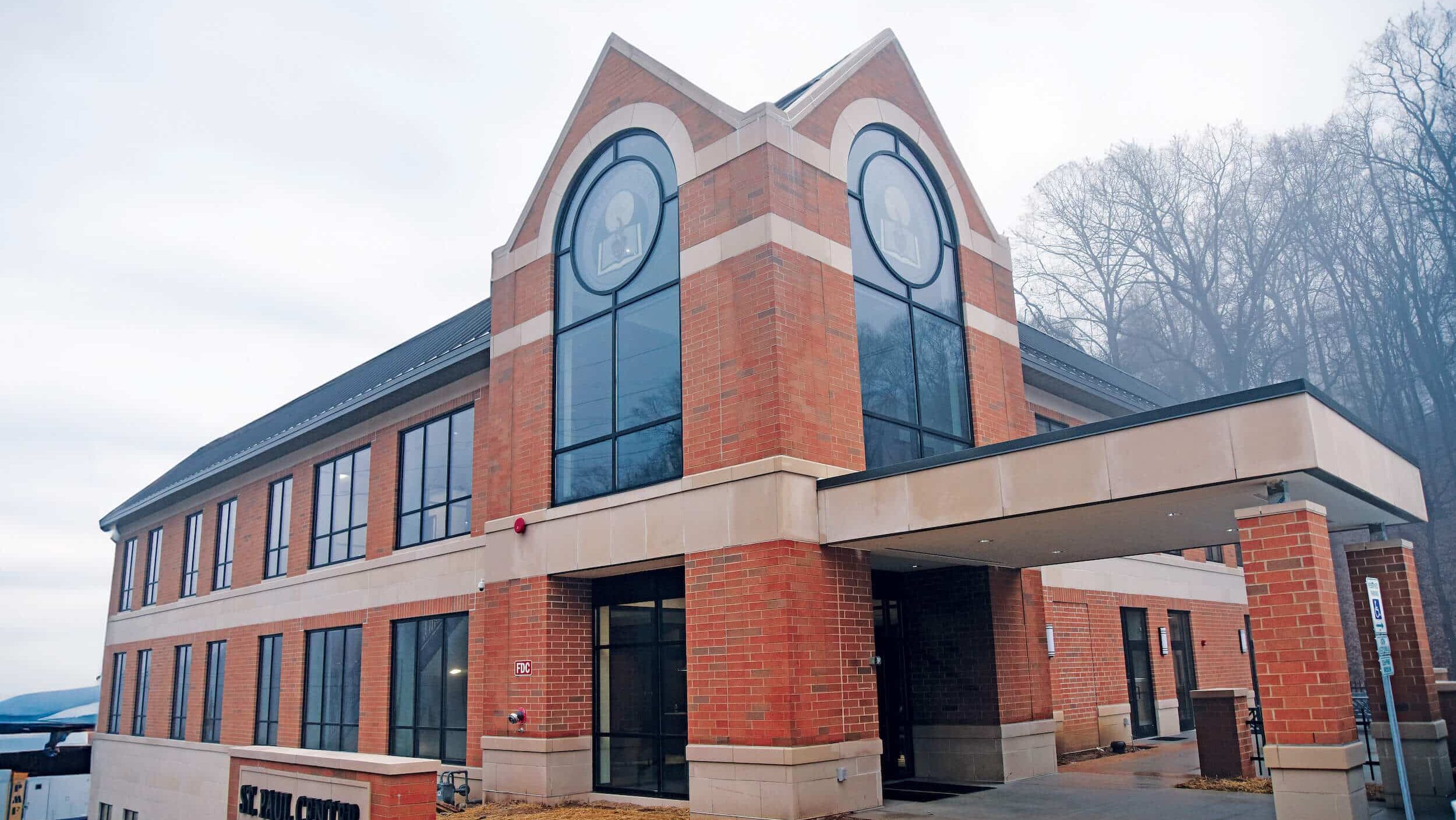
 F
F The most recent addition is Jimmy John’s, which opened in April. Owned by Franciscan alumnus Dan Vansteenburg ’93 and managed by fellow alumnus Liam Galligan ’21 MBA ’22, the sandwich shop marks an exciting new development for the whole community as University alumni choose to bring their businesses to
The most recent addition is Jimmy John’s, which opened in April. Owned by Franciscan alumnus Dan Vansteenburg ’93 and managed by fellow alumnus Liam Galligan ’21 MBA ’22, the sandwich shop marks an exciting new development for the whole community as University alumni choose to bring their businesses to 



